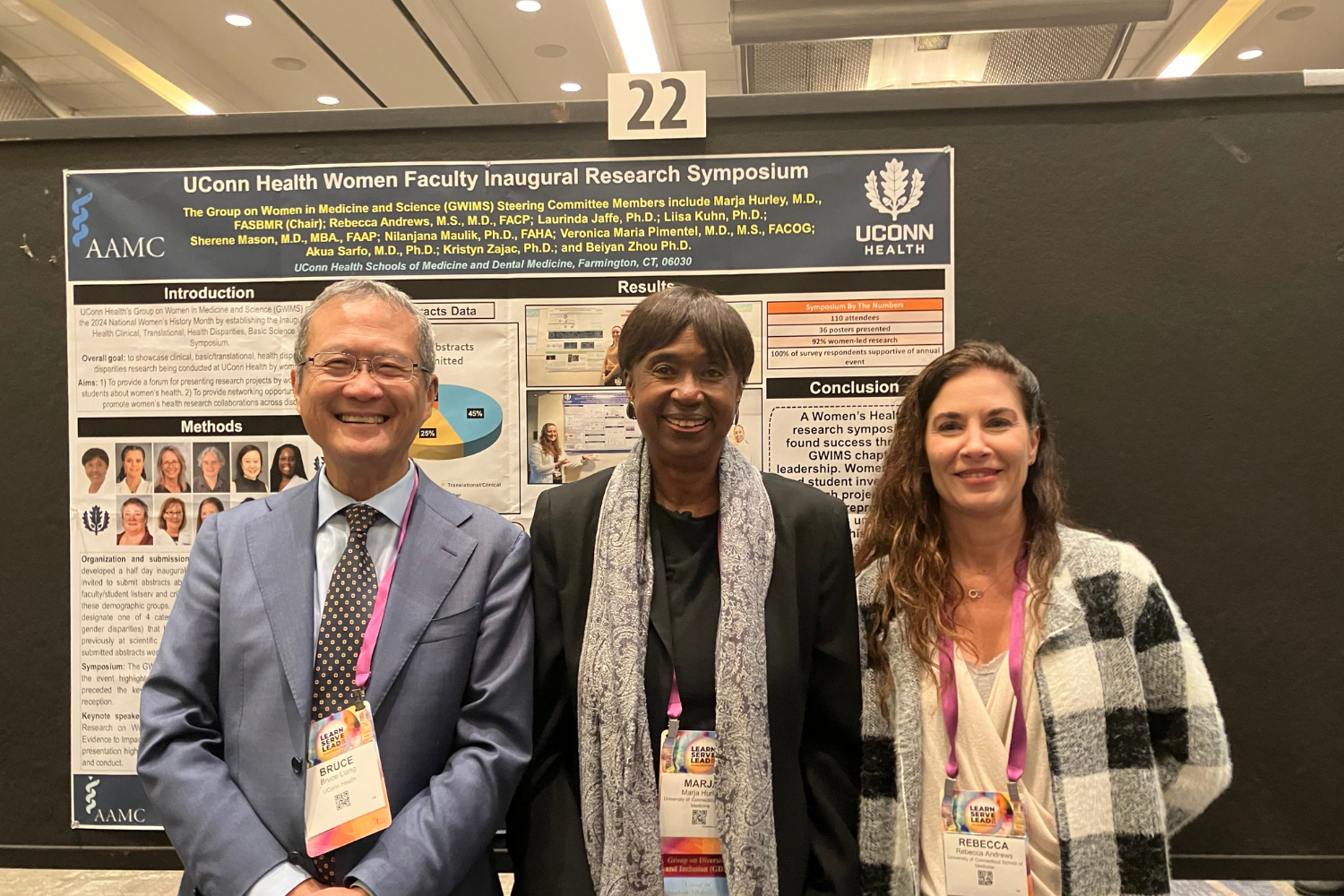The following Q&A derived from a discussion on pediatric dentistry with UConn School of Dental Medicine faculty member Dr. Katherine Fleming.
What has been the pandemic’s impact on pediatric dentistry here at UConn and around the country?
Fleming:
The negative effects on oral health, especially in children, have been significant – not just here, but across the country, and globally. Unfortunately, many families were not able to access the dental care they needed during the pandemic.
We have good research supporting the role of regular dental care in keeping kids’ mouths healthy. Preventive pediatric dental visits give us a chance to build trusting relationships with our patients and educate families on taking care of their children’s teeth. We also use these visits to identify and treat dental issues before they lead to pain or infection. So, it’s unfortunate that the pandemic interfered with dental care for so many children.
We’ve also heard from many families that oral health habits changed during the stressful time of the pandemic: adults and children have been snacking more, eating more sugary foods and not always remembering to follow their home oral hygiene routine. Between the fear of contracting COVID-19, limited access to dental care and anxiety about going to see dentists in general, it was a perfect storm.
Have UConn’s clinics been busy since reopening this past year?
Fleming: We’ve been consistently busy and are seeing a lot of kids whose care was delayed due to the pandemic. We have seen a number of cavities that have rapidly progressed during this period, requiring more extensive treatment than if we’d had the opportunity to treat them earlier. We take every possible precaution to keep our providers, staff and patients safe. For example, we are following enhanced infection-control guidelines, requiring masks and our providers are wearing additional personal protective equipment. Hopefully the availability of vaccines will continue driving young and older patients “back to the dentist’s chair.”
Obviously parents play an important role in their children’s dental care. What message can you send to parents?
Fleming: Preventive care is key – without regular visits, small problems can often turn into large problems. If larger issues arise, treatment can be more difficult for the child, which feeds their fears of visiting dentists as they mature.
This time of year, we always like to remind families to maintain their oral hygiene routine of brushing their children’s teeth twice daily with a fluoridated toothpaste and flossing nightly. Frequently, our schedules change around the holidays with school vacations and family events so these routines become even more important.
Also, I think it’s important that we get to enjoy some treats. It’s all about moderation and which treats we choose! Hard or sticky candies like caramels stay on the teeth for a long time and are higher risk for causing cavities. Additionally, it’s best to enjoy treats or dessert with a meal and then brush teeth 30 minutes after your child is done eating.
How do you address the “fear” problem for children visiting our dental clinics?
Fleming: Addressing “fear” is at the heart of our job as pediatric dentists. Our goal is always to make it easy, safe and less scary for our pediatric patients. We do as much as we can clinically, of course. We strive to treat conservatively and perform minimally invasive procedures whenever possible. Our primary tool for minimizing fear, though, is developing trust through empathy, active listening, and clear communication. We take the time to get to know our patients and their families as partners in care.
We also go to great lengths to engage children with age-appropriate language and techniques to let them know what to expect. For instance, we introduce our dental instruments and let children practice with the mirror so they can see each step of the process. We also try to keep it as fun as possible! We play music, tell stories and jokes and always end with a prize. Ultimately, our objective is to create positive relationships with our patient families and lay a foundation that will carry into adulthood.
What trends are helping make visiting the dentist easier and less scary?
Fleming:
We maintain a strong focus on practicing evidence-based dentistry. This is an exciting time for advances in dental care and technology, especially in the area of minimally invasive dentistry. We now have more options for treating cavities in fast, effective and painless ways. For example, we frequently use silver diamine fluoride, which is a liquid that arrests decay without drilling or needles. With a few applications, treatments like this prevent or delay more invasive care, sometimes for years. We’re also using other materials that require less invasive treatment to restore or treat cavities, such as stainless-steel crowns that can be placed without drilling. Again, prevention is always the best medicine, so focusing on patient and parent education helps us to ensure that our patients have the knowledge and tools to take better care of their mouths every day.
Why do dental students choose pediatric dentistry as their vocation?
Fleming: Everyone who goes into pediatric dentistry enjoys working with children. Pediatric dentistry is fast-paced and every day at our clinic is different. It’s a challenging job that is also incredibly rewarding. The biggest challenge, beyond technical ability, is learning how to make kids feel comfortable in the dental chair, to build trust so they know that you care and are listening to their concerns.
Our job is about far more than providing the care kids need and sending them home with a sticker. Children carry their dental and medical experiences with them throughout their lives. If parents were traumatized by their personal dental history, they will be reluctant to bring their kids. If kids have had bad experiences, this can haunt them into adulthood. So, we have to work closely with the child and his or her parents to make sure they get the care they need in a safe and comfortable environment. A huge part of our job is education, as many of the dental issues we see in children are preventable. We spend the time with families to teach both parents and children how to best take care of their teeth.
I was a fourth-grade teacher before I decided to change careers and become a dentist. Pediatric dentistry was a natural choice for me because education is so central to the job. I’m very proud to have joined the UConn School of Dental Medicine faculty – we have an incredible team and a terrific clinic.
# # #
Katherine Fleming is assistant professor at the UConn School of Dental Medicine, division of Pediatric dentistry. She has her DDS from Columbia University College of Dental Medicine, and completed her pediatric dental residency at Columbia University Medical Center/New York-Presbyterian Hospital.



